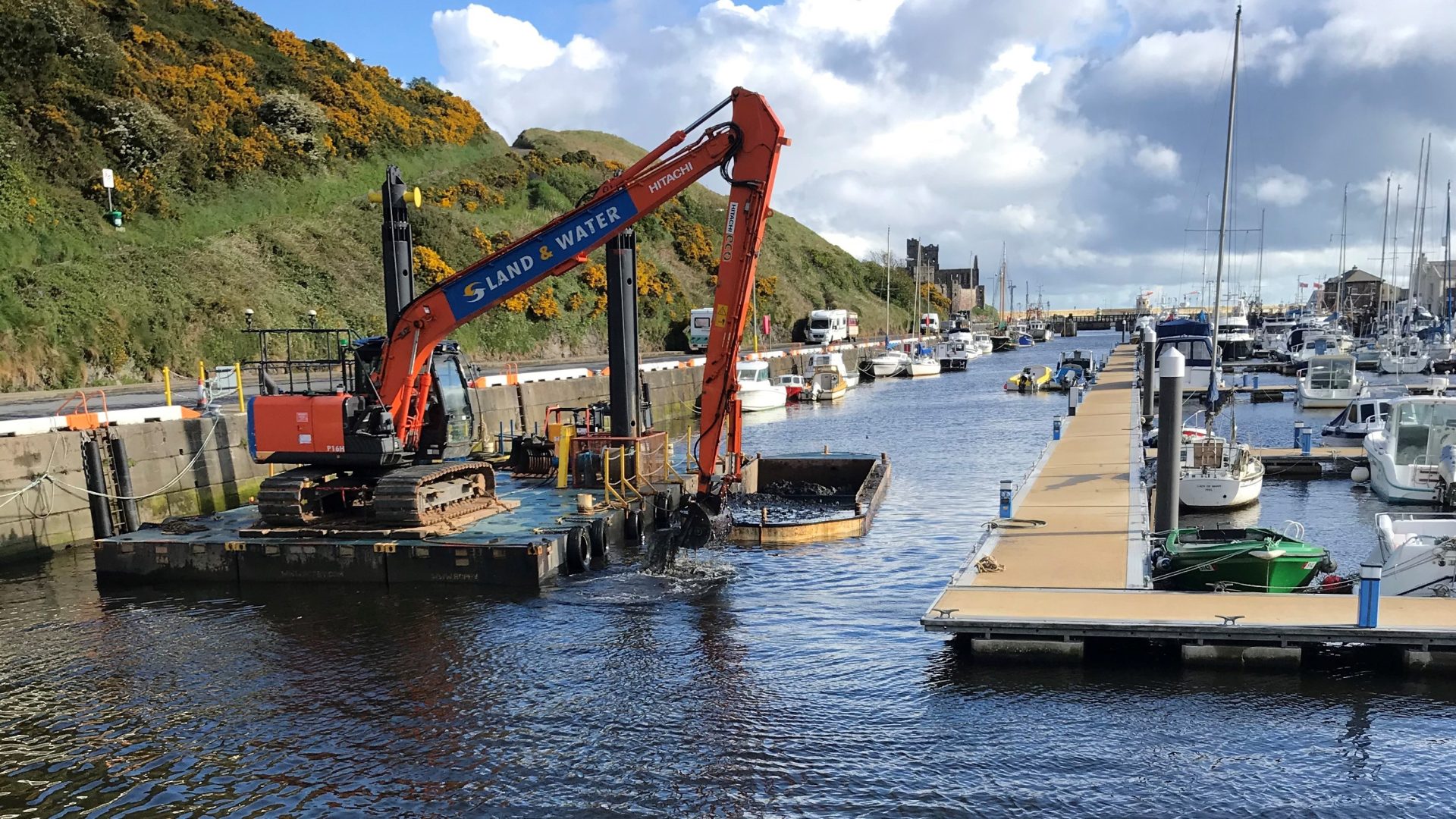An engineering, environmental and planning consultancy is supporting a government’s challenge to uncover a strategy for the disposal of 3,000 tonnes of sediment that settles in a harbour every year.
The Manx government has spent three years looking for a solution after sediments from the River Neb and Peel Harbour were dredged and stored in a purpose-built temporary lagoon on the west coast of the island in 2020 and 2021.
Caulmert is working alongside Mine Environment Management (MEM), completing an all Wales-based consultancy team, to utilise the group’s geotechnical, geochemical, and hydrogeological expertise.
They will develop and evaluate a strategy for the initial 16,000m3 of material set aside, and subsequent ongoing maintenance for up to five years.
As well as providing technical support in the formulation of a Prior Information Notice (PIN), the firm has undertaken a detailed assessment of the sediment, including a review of historical data.
Further specialised geochemical testing was also carried out at Geochemic Ltd’s advanced laboratory, located in Wales, to understand more about the materials’ properties.
The sediment contains elevated concentrations of lead and zinc, associated with historical mining activity, which prevents depositing at sea.
With the need to dredge the harbour every few years to ensure its functionality, the PIN will facilitate an opportunity for third parties to identify potential re-use options.
David Kitching, associate at Caulmert, which has offices in St Asaph, Bangor, Altrincham, Nottingham, and Kent, said:
“This is a crucial project, and our collaboration with the consultants at MEM will enable the IOM government to reach an effective conclusion and strategy.
“This partnership will offer key hydrogeological and geotechnical skills, alongside extensive experience in contaminants, while providing the most sustainable, safe and economical solution for dealing with the sediment.”
Caulmert’s highly skilled team of experts have carried out an initial review of the sediments, to identify the source of the contamination within the soil matrix.
David added: “We appreciate the government has tight deadlines, so we will be working efficiently with interested parties to seek a sustainable solution.”
Steven Pearce, technical director at MEM, said: “We typically work on schemes overseas at international mine sites, so it has been rewarding for us to bring the technical expertise of our geochemistry team and partner laboratory in Wales to a British Isles-based project and to collaborate with a fellow Welsh consultancy.”
Founded in 2009, Caulmert is on track to meet an ambitious growth and development plan.
Its expertise in a variety of planning, environmental and engineering disciplines is supported by its use of Building Information Modeling (BIM) to a level two standard in many of its projects.
For more information visit www.caulmert.com



